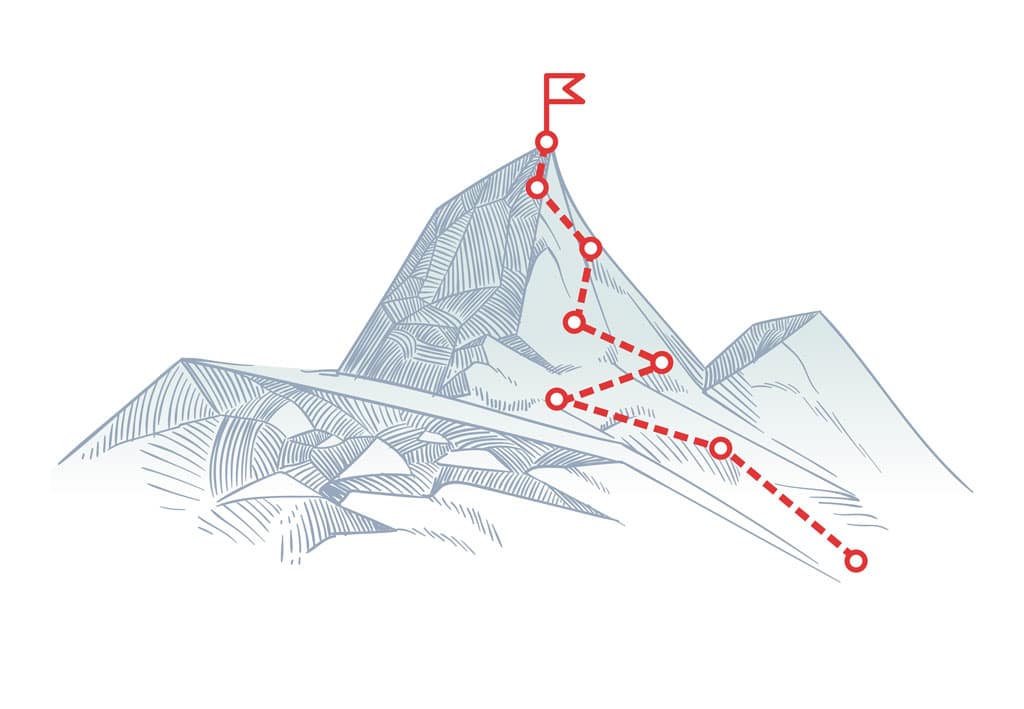How CEOs can Regain a Sense of Purpose

Based on insights from around 100 senior leaders, McKinsey discovered five key dilemmas today’s CEOs confront. Four of the dilemmas focus on balancing competing priorities to achieve business and team results. Only one dilemma focuses on the CEO as a person: immersing fully into the CEO role versus retaining personal identity and a sense of purpose. I have found this to be one of the most challenging for CEOs to find the balance points. Yet, displaying both leadership qualities is key for CEOs to thrive.
What makes this dilemma so challenging?
While critical, the concept of immersing fully in the CEO role tends to be over-indexed. I have noticed executives don’t give as much attention to the equally important leadership quality of retaining a sense of self and purpose.
As a public company CEO Coach and organizational psychologist, I have witnessed the immense pressure of the CEO role crush those who aren’t connected to their purpose and don’t care for their wellbeing. CEOs can become untethered in the role, eroding out everything else. Once CEOs lose their sense of self and purpose, they become misaligned with who they are at the core and make decisions that are out of alignment. CEOs losing their way is the most dangerous place from which to lead.
As I’ve shared previously, when leaders operate with binary, either/or thinking, they tend to over rotate to one side of the other of seemingly conflicting qualities.
At the extreme, a CEO who over-indexes immersing fully in the CEO role defines themselves solely by their accomplishments.
Externally, the executive appears successful. They are incredibly high performing, having accomplished an impressive amount. Internally, they might not know who they are outside of their accomplishments and don’t feel fulfilled.
This can lead them to lose connection to themselves and their purpose. Unfortunately, when leaders define themselves only by their accomplishments, over time, it can become empty and meaningless.
Being highly engaged in the CEO role and having a deep sense of self and purpose are not either/or leadership qualities. Executives must exhibit both as the foundation of exceptional leadership.
Integrating Role Accomplishment and Purpose
Understanding the distinction between “doing” and “being” can help executives integrate immersing in the leadership role with connecting to a sense of self and purpose.
When leaders get caught up in a doing cycle, they can keep doing and doing for the quick hit or the immediate sense of accomplishment. Underneath, they are often driven to accomplish for validation and self-worth. However, leaders can feel incomplete if they aren’t connected to themselves or the impact they want to have.
A person’s being is who they are at the core, their essence. Someone’s being helps them become grounded in what matters and to their purpose. Everything they accomplish from a place of being is stronger. Leaders aspire to accomplish to make an impact, in service of a greater purpose and what matters, with true connection to themselves and others.
As leaders lead from their core, they cultivate a deeper sense of fulfillment. Being fulfilled doesn’t mean disregarding accomplishment. What it does mean is not defining your self-worth by your accomplishments. You can be both incredibly accomplished and deeply fulfilled.
Fulfillment means having a deep sense of inner peace, alignment and a groundedness from doing what you intend to do in life. Fulfillment comes from feeling a sense of purpose and acting in alignment with your own personal values.
To understand the difference between leading from doing versus being, leaders can assess what motivates them to accomplish.
Indications accomplishments are for validation:
- You define yourself and your self-worth by your accomplishments
- Accomplishments become a quick hit to feel okay or comfort yourself in the moment, but you’re left feeling incomplete
- You’ve sacrificed yourself and your wellbeing to accomplish at all costs
Indications accomplishments are for impact:
- You are grounded in what matters, your essence, your purpose
- You are accomplishing in service of a greater purpose and/or having a positive impact
- You lead with a foundation in physical, psychological, emotional and spiritual wellbeing
If you notice you have been coming from a place of accomplishment for validation, it’s important not to get into a shame cycle. Instead, start by recognizing it’s okay to be driven to achieve. Accomplishment for validation might be where you are today, but if it’s not serving your leadership and life, you can shift to focusing on accomplishments for impact.
To do so, connect with what matters to you and on serving a greater purpose, with less emphasis on the achievement itself.
How to Regain a Sense of Purpose
The key three approaches to regain a sense of purpose are to connect to yourself, your purpose and your core values.
- Connect to yourself deeper
Everyone has different access points to connect more deeply to their core.
How you connect to your being crosses over every facet of your life. It’s not one thing. A start of ideas include: nature, meditation, acting as a positive leader, community, or connecting deeply with others.
Get to know what connects you to your being, who you are at the core. Explore activities that get you closer to connecting to this aspect of yourself and incorporate them in your work and life regularly.
Reflection: What connects you with your best self and/or something greater than yourself? - Connect to your sense of purpose
Sometimes, people look at purpose as only about what they accomplish in the world. However, purpose is deeper than that. Purpose is both being and doing.
Purpose is about truly understanding yourself, your gifts, who you want to be in this world, and ultimately, what you want to give.
It’s you who must find the source of your meaning and discover the gifts you want to give the world.
Reflection: Who do you want to be in this world? - Act in alignment with your core values
Your core values are your internal compass, which is a key aspect of who you are at the core. They are the principles that guide your life and help strengthen what brings you meaning. Through having clarity on your core values, you’ll know who you are, what you stand for, and what your principles are. Connecting with what matters to you helps you understand the direction to focus your efforts to achieve.
Make sure you are clear on your core values. If you aren’t or haven’t reflected on them in at least a year, it’s time for a refresh.
Reflection: What’s one way you could lead with your core values this week?
CEOs who lead with a strong sense of self and purpose attain true internal and external success and fulfillment in the CEO role and in life. They make hard decisions in alignment with a greater purpose of what they want to stand for and who they want to be in this world. Their impact is monumentally greater, leaving a legacy of which they are proud.
Written by Dr. Jamie Shapiro.
Have you read?
Safest Countries in the World.
Most Productive Countries in the World.
Most peaceful countries in the world.
Most influential financial centers in the world.
Bring the best of the CEOWORLD magazine's global journalism to audiences in the United States and around the world. - Add CEOWORLD magazine to your Google News feed.
Follow CEOWORLD magazine headlines on: Google News, LinkedIn, Twitter, and Facebook.
Copyright 2025 The CEOWORLD magazine. All rights reserved. This material (and any extract from it) must not be copied, redistributed or placed on any website, without CEOWORLD magazine' prior written consent. For media queries, please contact: info@ceoworld.biz








